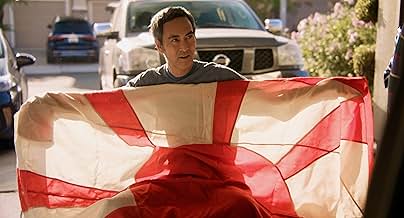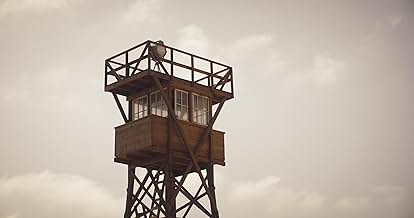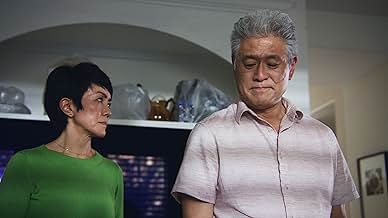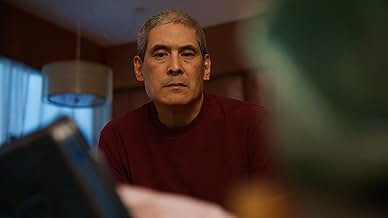Adicionar um enredo no seu idiomaEighty years ago, on the eve of war and incarceration, a Japanese American family buries a secret in their backyard garden. Three generations later, a clue is discovered - unearthing the tra... Ler tudoEighty years ago, on the eve of war and incarceration, a Japanese American family buries a secret in their backyard garden. Three generations later, a clue is discovered - unearthing the trauma and truth of their historic past.Eighty years ago, on the eve of war and incarceration, a Japanese American family buries a secret in their backyard garden. Three generations later, a clue is discovered - unearthing the trauma and truth of their historic past.
- Prêmios
- 6 vitórias e 15 indicações no total
Avaliações em destaque
Director Paul Daisuke Goldman deftly handles the complexity and tension coming from some of the family wanting to know what these details are no matter what versus keeping the status quo of the family identity by not delving into these secrets and details. During wartime incarceration during World War II, these Japanese American families were not treated as citizens who could have a freedom of choice to join the war effort or not. The Broadway show 'Allegiance' delves into these issues by showing Japanese American families experiencing the camps. This film shows the aftermath of what happens when the issue of racial profiling taken to the extreme, and even generations later, its impact on the family. Given the currently state in America and what is happening to the Latino immigrant community, ICE and racial profiling, this movie is indeed timely. With a capable, strong ensemble cast, "No No Girl" is notable in its restrained and intimate storytelling. It's a reflective and gentle reminder of how our family history shape who we are. If you are looking for a contemporary family drama which is both thoughtful and inspiring, I recommend giving "No No Girl" a look.
What makes "The No No Girl" so special is the way it portrays a Japanese American family, which is different from other Asian American families. The Hasegawas are third and fourth-generation Japanese Americans living in Southern California, and their family history is deeply connected to the generational aftereffects of Executive Order 9066, which sent many Japanese Americans to concentration camps during World War II. The film explores how this history affects the family's sense of identity and belonging, and how it impacts their relationships with each other.
The film's director, Paul Daisuke Goodman, weaves together many characters and elements with great skill, balancing heavy themes such as property theft with moments of light-hearted comedy. The performances of the actors are outstanding, and the characters are well-developed and believable. The film also beautifully captures the complexity of family relationships, showing how secrets and buried emotions can have far-reaching consequences.
In conclusion, "The No No Girl" is a must-watch film that beautifully explores the complexities of family relationships and the impact of buried secrets on family identity and stability. The film's portrayal of a Japanese American family is unique and adds an important perspective to the portrayal of Asian American families in popular culture. The film is expertly directed, and the performances are outstanding. I highly recommend this film to anyone who enjoys thought-provoking cinema.
Você sabia?
- CuriosidadesActor Ken Narasaki is also a playwright, and authored a play entitled "No-No Boy," adapted from the novel of the same name by John Okada. In its world premiere in 2010, Chris Tashima was in the cast. The play was also featured as an audio program by LA Theatre Works in 2021, and Kurt Kanazawa was in the cast.
- Citações
Gail Hasegawa: They were running from a fire, not hiding the matches.
- Trilhas sonorasTrust
Written and Performed by Hannah Leigh and Brandon Lew
Produced by Brandon Lew
Courtesy of Brandon Lew
Principais escolhas
Detalhes
- Data de lançamento
- País de origem
- Centrais de atendimento oficiais
- Idioma
- Locações de filme
- Los Angeles, Califórnia, EUA(Hasegawa House)
- Empresa de produção
- Consulte mais créditos da empresa na IMDbPro
- Tempo de duração
- 2 h(120 min)
- Cor
- Proporção
- 1.85 : 1




















